Best phones for musicians: our pick of smartphones for music production
The pocket wonders that will have you making mobile music wherever and whenever, as well being your do-it-all device on the road

The humble mobile phone has, of course, become the device that now does everything we ever imagined (and quite a lot we didn't). As well as a gadget more than capable of delivering a great music listening experience, it has also developed into a great music production tool. After looking at all the major players in the smartphone market and testing them for their music making prowess, we've gathered together the best phones for musicians and music producers in this buyer's guide.
We're including both Android and iOS phones in this round up as there are certainly enough apps available in both camps for serious music creation – you really can create complete tunes with nothing more than your smartphone and imagination! Our Buying Advice section towards the bottom of this guide contains some essential purchasing information that you should take on board before you make your smartphone choice.
But this isn't just a guide for music makers. If you're a touring musician it's important you have a phone with strong battery life, loads of storage, a great camera and all the tools for doing business on the go. All the phones in this guide fit that bill, too.
And if you want a quick fix and to know our top phone choices for music production right now, we have listed them below, just before our main reviews. So let's go mobile with some of the best smartphones for music making and music makers, from Apple to Sony, Google to Samsung.
Best phones for musicians: Our top picks
Choosing the best phone for musicians is simple! All you need to do is opt for which operating system to go for - iOS or Android - because our top picks are the two most powerful and feature spec'd devices within each category.
The Apple iPhone 14 Pro (and Pro Max) simply delivers all the music production power and apps you will ever need. Apple's long standing OS is slick and smooth and the many apps in its store will have you making beats, tunes and complete songs in any genre in no time at all.
Similar in terms of power, the Samsung Galaxy S23 Ultra has the clout you need for music production and will run any of the increasing number of music making apps available for the Android platform. Again, Android apps are more than a match for most iOS music making titles so you can't go wrong with this option.
Of course, neither of these top picks come cheap – they are devices at the top of their game with the maximum power you need for music production. However, we have also included cheaper alternatives in both camps in our main reviews below, with Google's Pixel 7 Pro and Apple's iPhone 13 both being solid and more cost-effective options if your budget is tight.
Best phones for musicians: Product guide
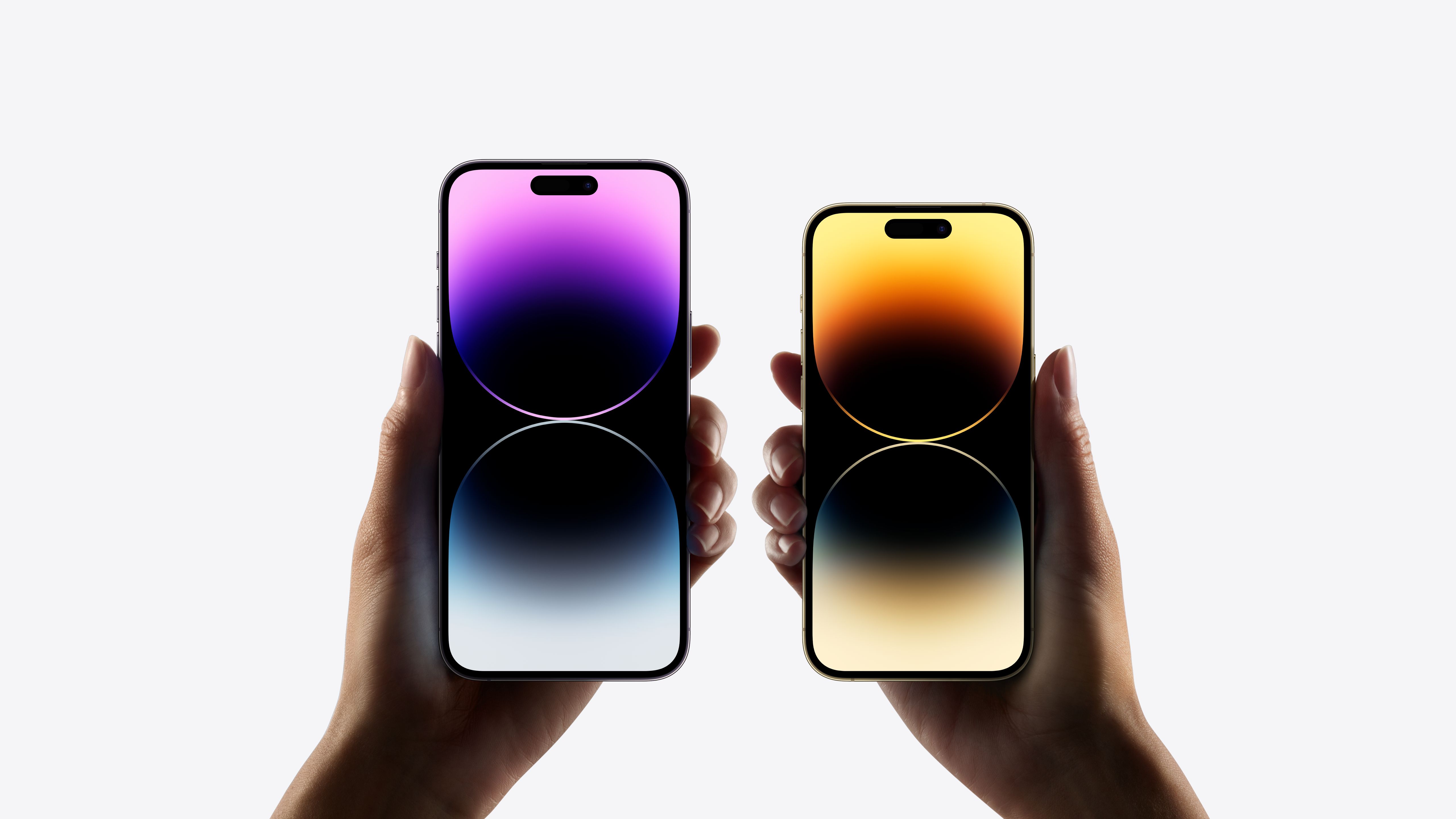
1. Apple iPhone 14 Pro / iPhone 14 Pro Max
Our expert review:
Specifications
Reasons to buy
Reasons to avoid
The iPhone 14 Pro and iPhone 14 Pro Max are quite simply the best iPhones that (quite a lot of) money can buy, so for fans of Apple and the enormous amount of music production apps on the iOS platform, these are the ultimate choice.
These phones excel in almost every area and, aside from their screen sizes, they are very similar, hence the inclusion of both in one entry. They both sport two stereo speakers – one on the bottom edge of the phone and the other at the very top edge of the screen. These can produce a loud and sharp sound, and are also both capable of Spatial Audio so your listening needs are more than catered for.
Both phones include the newest A16 bionic processor which is the best you can get in an iPhone, and is more than adequate for any current music production apps.
With other specs, they're similar to the previous iPhone models, but the notch is gone, with a new 'Dynamic Island' used instead, where all your current activity is shown in one handy area. They also feature Apple's ProMotion, effectively delivering a 120Hz display refresh rate, which should mean that some smaller music apps are clearer to work with. Both phones have a slightly better battery life than their predecessors, and in our reviews we found they lasted long enough to see you through a busy day and night, with the Pro Max potentially lasting longer still.
Via headphones – Bluetooth only – these iPhone 14 Pros sound better than Sony’s Xperia 1 IV, previously the best-sounding phone we’d tried. The iPhones sound more exciting and engaging while being authentic. The speakers aren't so much of an improvement on the previous model but they do have a warmth and richness lacking in other phones.
These are undoubtedly top-tier phones for music making and listening. The bigger screen of the Max will be an advantage, although the slightly lighter and cheaper Pro has obvious portability benefits to weigh up too.
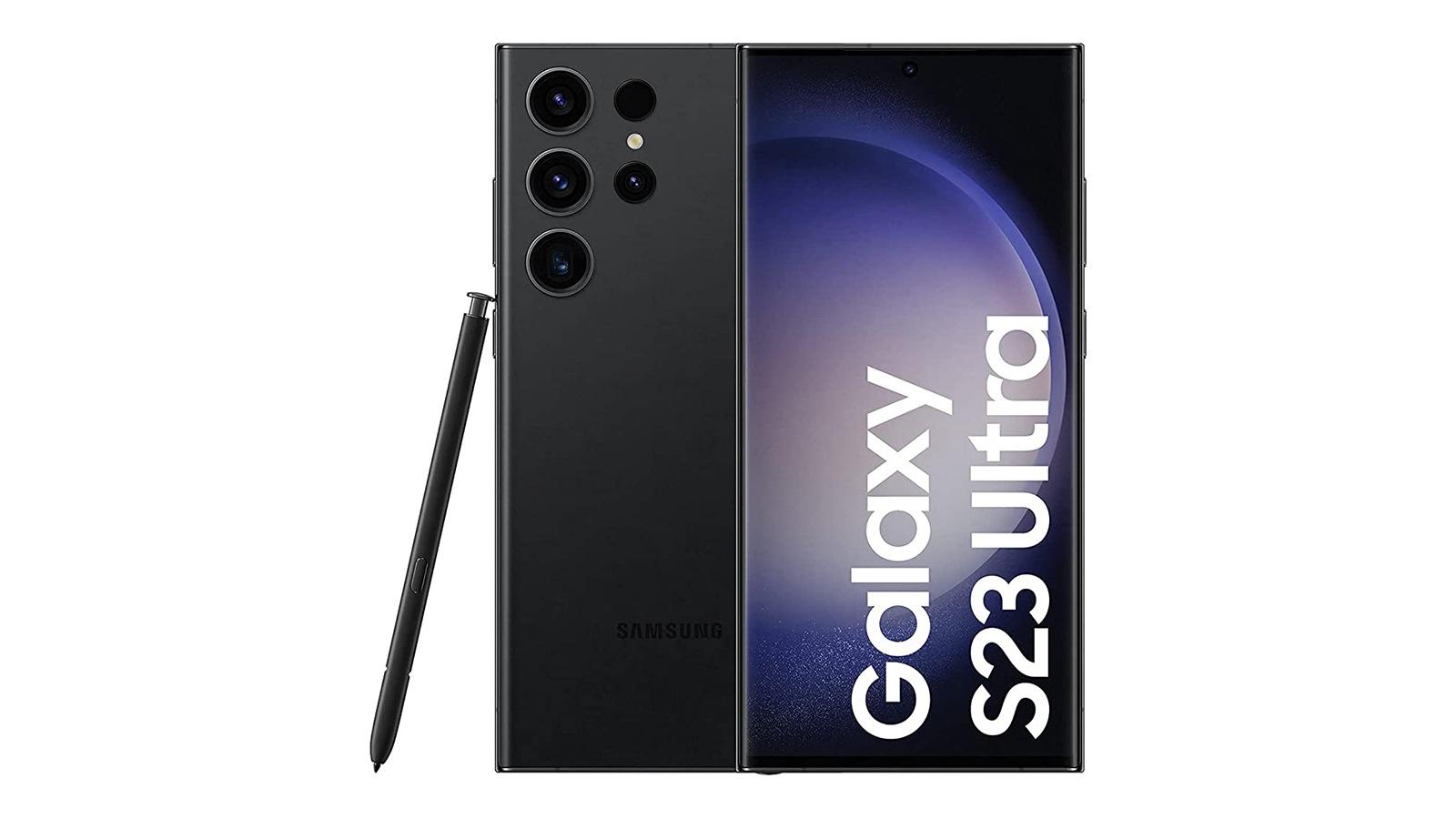
2. Samsung Galaxy S23 Ultra
Our expert review:
Specifications
Reasons to buy
Reasons to avoid
Where the iPhone 14 Pro range will obviously appeal to iOS fans, the Galaxy S23 Ultra will appeal to Android fans for exactly the same reasons, and has similar pros and cons.
The Samsung Galaxy S23 Ultra is Samsung’s most feature-packed handset. It’s big, powerful, and, like the iPhones, the price is excessive. It is a superb phone though, from its screen to its cameras, performance, battery and beyond.
The Galaxy S23 Ultra's display is a standout feature, bigger than either Apple (just), and with a QHD+ resolution, a 120Hz variable refresh rate, plus a high maximum brightness, it’s among the biggest and best screens you’ll find on a phone.
Sound wise, with Dolby Atmos support for the speakers, the Samsung provides a wide soundstage, and delivers a warm and natural tone. The iPhone’s speakers can go louder than the Samsung’s, but the S23 Ultra’s speakers are more than adequate for most scenarios. Headphone performance is not quite as good as that of the iPhone; not unpleasant, though, as the Samsung offers a detailed and clear delivery.
Power wise, with the Snapdragon 8 Gen 2, you're getting the best-performing Android phone on the market, if not the best-performing phone outright. This means that whatever music making tasks you throw at it, you can be sure this phone will be their equal.
The 23's battery lasts well over a day with moderate mixed use, so it is above average, but also charges fairly fast.
Like the iPhone 14 Pros, the S23 Ultra is the ultimate phone in its sector. And yes, you pay for it, but the best is never the cheap option.
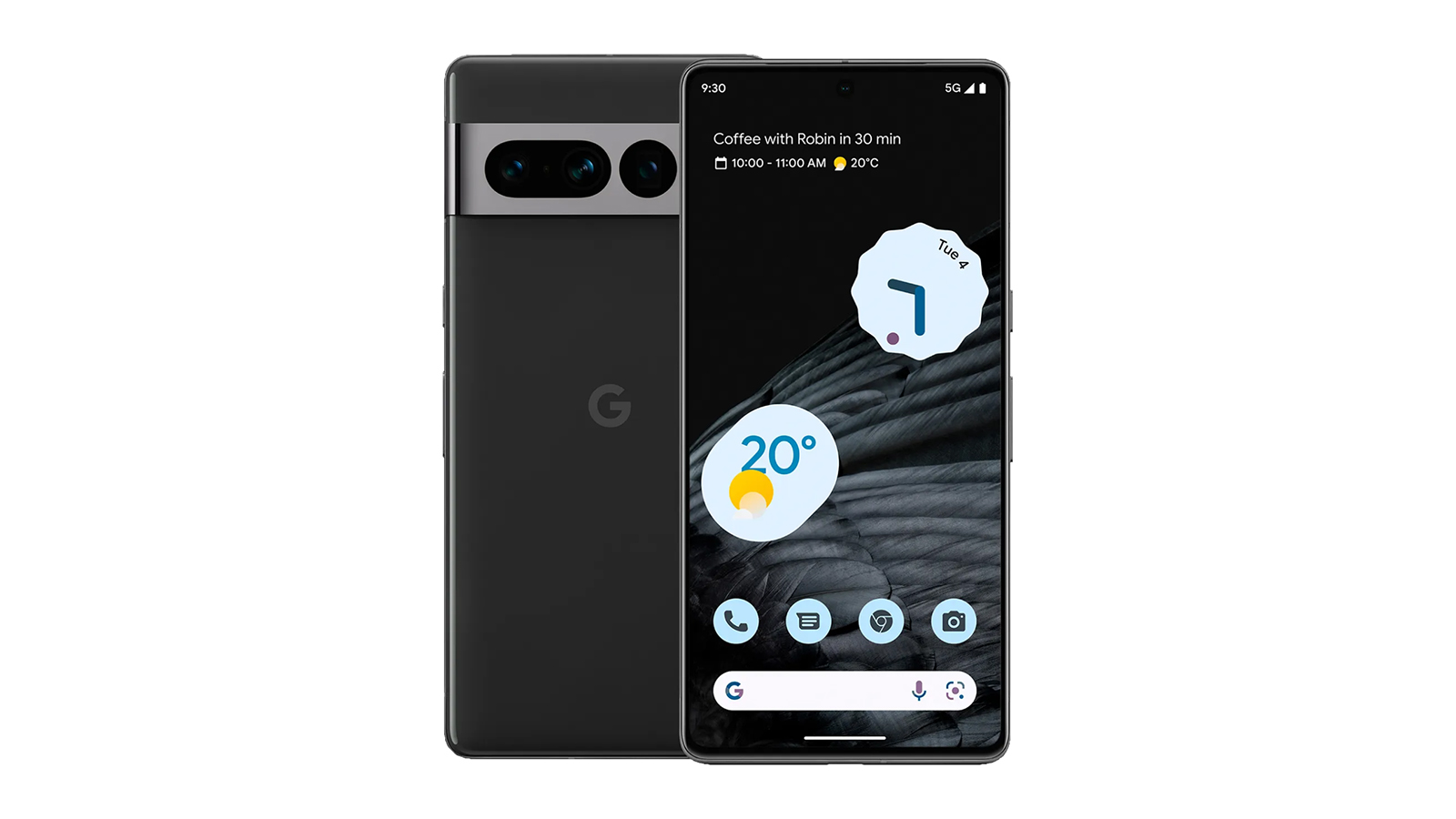
3. Google Pixel 7 Pro
Our expert review:
Specifications
Reasons to buy
Reasons to avoid
The Google Pixel 7 Pro is currently the pick of the Pixels. It features a Tensor G2 chipset optimised for Google-specific AI tasks and, while it will handle most music production Android apps, it doesn’t provide quite the power of most other flagship phones.
The Pixel 7 Pro sports a great design that stands out. It recognises speech more accurately, making Google Assistant more useful, and translates foreign languages faster. It doesn’t just make photos better, it makes them clearer using Real Tone technology to enhance skin tones.
The Pixel 7 Pro has a 6.7-inch 1440 x 3120 display with a 120Hz refresh rate. It’s big, smooth, uses AMOLED, and it looks great. It's not the best for battery life, though. There’s a 5,000mAh battery, and in our experience it can last a full day, but that doesn't put it at the top of the pile.
While it might be underpowered compared to the Samsungs and Apples here, we never felt like the Pixel 7 Pro was lacking in pure performance in a way that affected our usage. Perhaps this is because Google has such tight synchronicity between the OS and the hardware, but we felt the interface was much snappier than other devices we use. Simply finding our apps or navigating our home screens felt faster. It's a good all-rounder at a decent price if not the top pro performer.
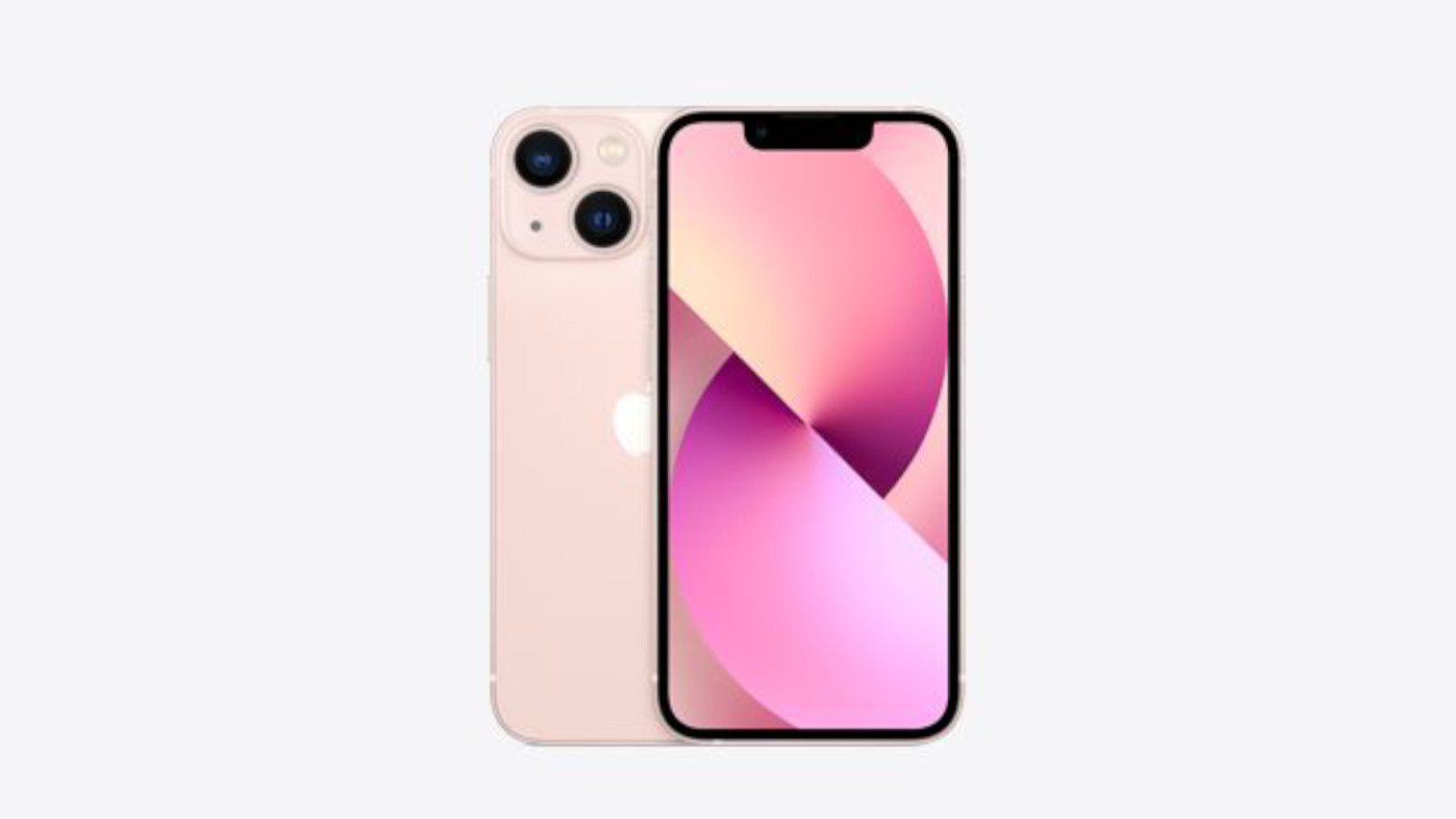
4. Apple iPhone 13
Our expert review:
Specifications
Reasons to buy
Reasons to avoid
The iPhone 13 is still a very capable phone for getting the Apple 'experience' and access to its arguably wider range of apps for music making. And of course it is a somewhat cheaper option than the full-spec'd 14 Max/Max Pro.
Build quality is everything you would expect of an iPhone, but what's interesting here is that the screen size and resolution is a match for the 14 Pro – so in that respect, it is great for the money. It's also up there in terms of battery life, but you are getting less memory. The power here is also less than that of the 14 Pro, as the 13 utilises the older A15 Bionic, six-core CPU. However, this is more than adequate for most music apps and it still packs a punch compared to other phones out there.
On the audio side, you're also getting the Spatial Audio playback (with Dolby Atmos support) so for music playing it doesn't get much better than this. It sounds exciting and dynamic, and remains a force to be reckoned with.
If you want access to Apple's vast store of music making apps, then the iPhone 13 is currently your most cost effective option when weighing up price versus performance.
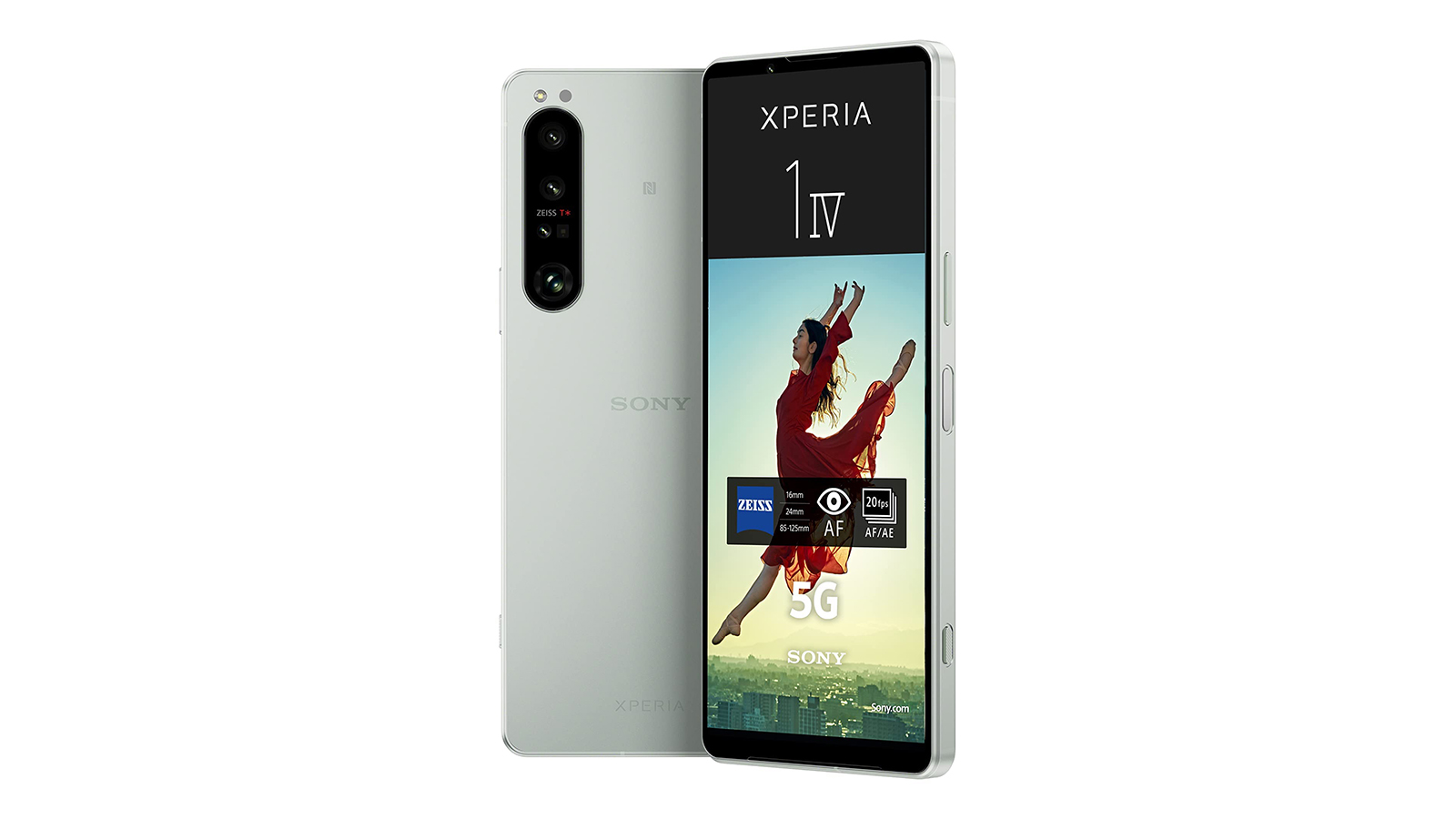
5. Sony Xperia 1 IV / 5 IV
Our expert review:
Specifications
Reasons to buy
Reasons to avoid
Both of these Sony Xperias boast similar specs so, like the Apples above, we have bundled them into one review. They are powerful handsets with impressively detailed photography and a long-lasting battery. Neither comes cheap, though.
Via headphones, the Xperia 5 IV produces a natural and textured sound, although it's not quite up there with the iPhone 14 performance. The most striking feature of the Xperia 1 IV’s sound performance is how natural and textured instruments come across. Guitars sound rich and characterful, while bassy kick drums are tight and defined. The 5 IV also gets a very similar front-firing speaker set-up to the 1 IV, and while you won’t want to listen to whole albums on these speakers, they’re a more than acceptable choice. Power wise, both boast a Snapdragon 8 Gen 1 chip which isn't the latest but should handle most music tasks.
The Sony Xperia 1 IV is for those who want a big, high-quality screen with all of the most up-to-date features, particularly when it comes to the camera system, whereas the Sony Xperia 5 IV is a much smaller device fit for anyone who cares more about portability than anything else. The size of the larger 1 IV screen will obviously benefit music making but, as our buying advice below states, this is always something you'll have to balance with portability, which the 5 IV excels with.
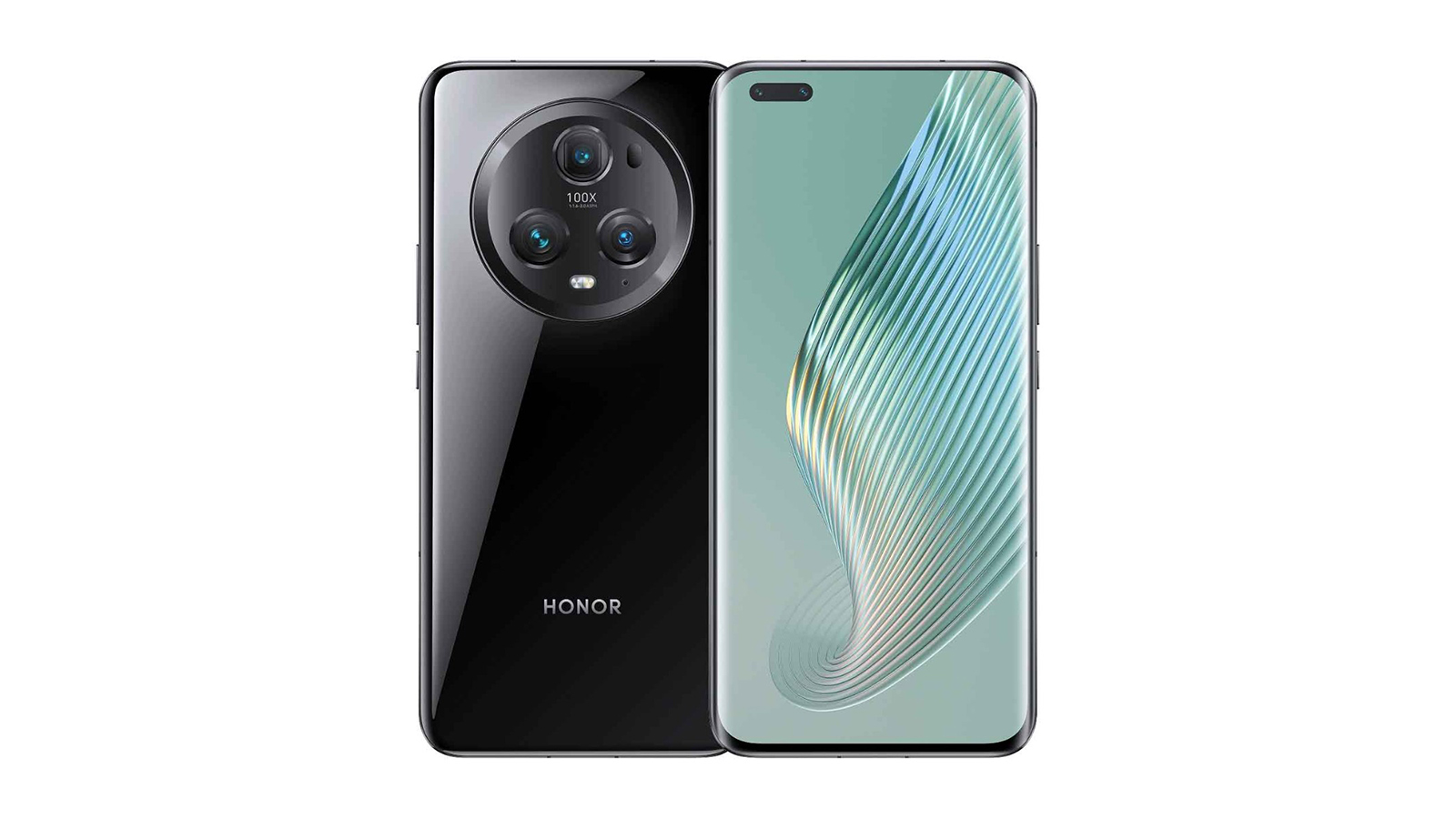
6. Honor Magic 5 Pro
Our expert review:
Specifications
Reasons to buy
Reasons to avoid
If you are not interested in following the big brands or being a 'fan person' of any particular OS, then this Magic 5 Pro might be the phone to set you apart. It has one of the best sized screens here, delivers decent battery life, and even though it comes in for less cash, it has features to rival those Apples and Samsungs.
The Magic 5 Pro uses an absolutely gorgeous 6.81-inch LTPO OLED display that offers a crisp 1312 x 2848 resolution and a fast refresh rate of up to 120Hz. You’ll get closer to a day-and-a-half of action from the Magic 5 Pro before needing to reach for a charger – better than many phones here. Charge times are seriously quick too, although we did notice some overheating when leaving the phone plugged in for too long.
There's a good camera too, with a main sensor that is 35 per cent larger than that of the iPhone 14 Pro Max and Galaxy S23 Ultra, which means it can deal with the challenges of light more effectively, and the phone’s use of computational photography delivers zoom clarity that’s comparable to its premium rivals.
Power wise it has the same processor as the Samsung, so offers the type of performance you’d expect from a near-four-figure Android flagship and will easily handle your music apps. The design might not be for everyone – the camera does protrude – but for the price and features, the Magic 5 Pro really does deliver.
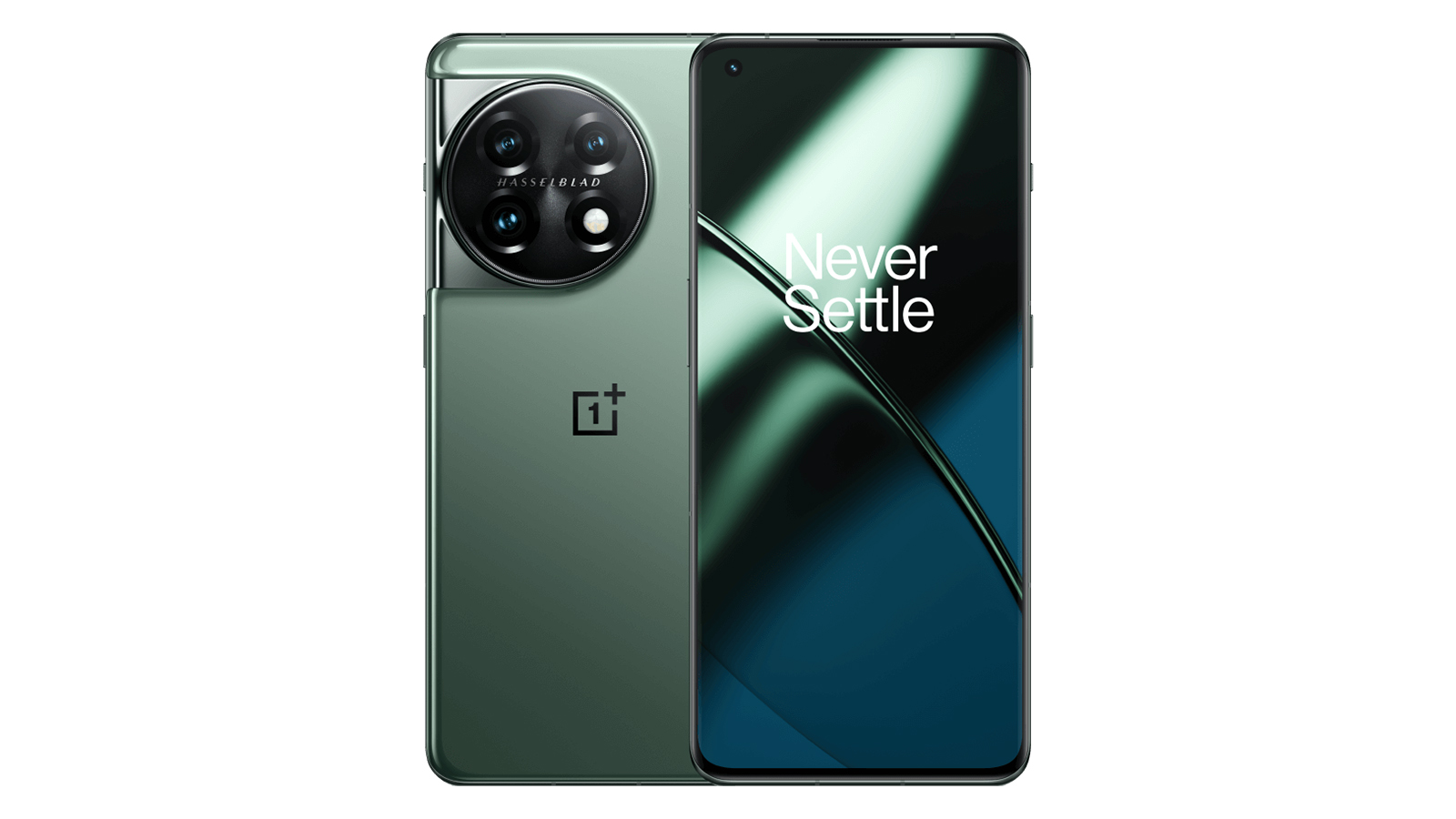
7. OnePlus 11 5G
Our expert review:
Specifications
Reasons to buy
Reasons to avoid
The OnePlus 11 might be a flagship phone like many of the rest of the models in this buyer's guide, but you'll pay less for it and it also boasts excellent power.
The OnePlus 11 has a large, long-lasting battery that charges very quickly, although it doesn't feature wireless charging. Another negative is that it is rated IP64, which means it can keep out fine dust particles and larger solids, but can only handle a direct spray of water and liquid – no dropping this phone in the bath or giving it a swim elsewhere; it simply won't handle it.
The display doesn't disappoint: big, vivid, and colourful, with a high refresh rate. The phone also has a decent camera and very decent power for running music apps. The fast processor paired with the high-refresh screen make for an amazing experience playing the latest apps, games, editing photos, or even just using the interface.
Overall the OnePlus 11 is a well powered and great looking phone, if not the most practical for all uses.
Best phones for musicians: Buying advice
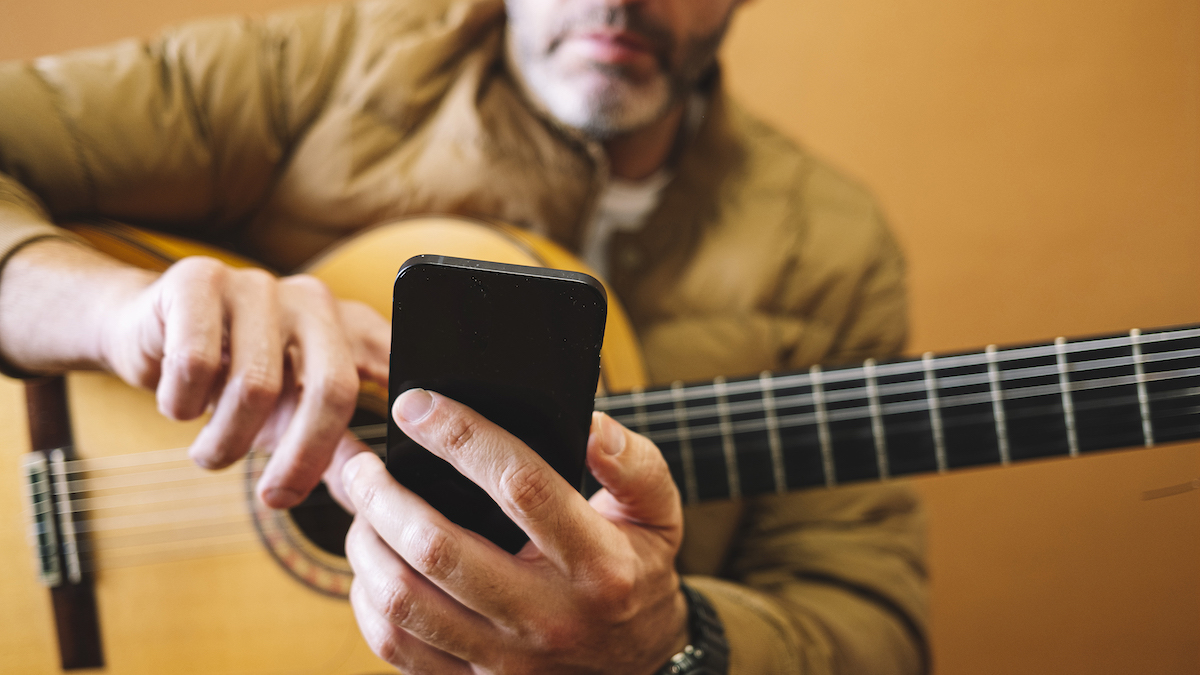
Should I go for iOS or Android?
When it comes to buying a phone for musicians and music production, the biggest decision will be whether to go for iOS or Android, and that will be personal to you, maybe based on your previous phone or computer history. Obviously Mac fans will want to stay in the Apple arena and die-hard Android fans will have just as many reasons to avoid it.
The truth is we're not recommending one platform over the other, as your decision should really be based on the apps you choose from the many that both platforms support. And in this regard, both iOS and Android music making apps are many, varied and of great quality. The big names in mobile music production, like Korg, FL Studio, Roland, Bandlab and Steinberg, have big releases on both platforms. If you were to force us to choose one, we'd probably say that Apple just edges it, but Android users certainly have more than enough quality software titles to choose from.
Do I need a big screen for mobile music production?
The next buying decision is screen size. Here you have to weigh up the obvious benefits of a large screen for music making – the more real-estate you have, the easier it will be to see what is going on – with the main benefit of using a phone in the first place: its portability. If you really are all about the screen size over being able to fit a phone in your pocket, then you should also consider the tablet route for music making. Apple iPads and Android devices from Samsung, Lenovo, and many more, not to mention full PC touch-based tablets, will all offer you a much better music making experience, but at the cost of portability and not being able to actually make phone calls!
Do I need the most powerful phone to make music?
Then there's power. Music making apps usually require the most processing power so do factor this in. Our top recommendations will handle just about anything, as will most of the cheaper options, but in general, our advice is to get as powerful a processor as you can afford, to future-proof your system against the rapid advances in music production app development.
What do I need to consider in terms of connectivity?
Finally, we have to consider connectivity. A headphone socket is useful because you will be able to plug speakers and standard headphones in to hear your productions. These are becoming rarer, though, so wireless Bluetooth is becoming more standard – which might bring in latency issues when you are recording. USB-C means you will be able to plug into a wide range of audio interfaces should you wish to up your music production game with pro gear and will reduce any latency. You can also get USB to headphone connectors to use standard headphones/speakers. Apple's Lightning connector also uses an adaptor to break out into further audio options and the phone also utilises Bluetooth, so will require wireless 'phones.

Considerations for working musicians
MusicRadar's got your back
You may not just be looking to invest in a phone that enables you to make music on the go. The smartphone is an essential tool for any touring or working musician - it's your connection with band members, producers and other clients, the device for recording quick ideas and for documenting your travels, your social media hub and streaming machine for those Netflix binges during long tour bus journeys.
So, a few other features we would consider before making a purchase include fast charging so you can quickly top up your battery ready for a travel day on tour, decent (possibly expandable) storage so you never run out of space for all those voice notes, videos and photos that accumulate and something with a decent water and dust rating so it will survive the bumps and scrapes of the road.
It's also worth doing your research into which carrier to go with to ensure you get the best coverage for your area and that there are no hidden charges for roaming in other countries.
How we test the best phones for musicians
We like to spend a couple of weeks with every phone that we test, using it as you would a normal phone for every day use, checking social media, listening to music, playing games, photography and, of course, music production. In the latter respect, the speakers and headphone performances are as important as the power – you want to hear the music you make played back as accurately as possible.
Battery life is important too. If you have decided you want the portability and convenience of a phone for music production, you'll want the phone to last a while doing so. Other areas that we also focus on when creating our scores and verdicts are the phone's design, display for using those apps, the cameras (we do love taking pictures at gigs), performance, software and battery life, though of course the price is also one of the most important factors in our final judgement.
Related buyer's guides
- Record on the go with the best microphones for iPhone and iPad
- Best USB microphones: all-in-one mics for streaming and vlogging
- Best budget USB microphones: get creative for less
Want all the hottest music and gear news, reviews, deals, features and more, direct to your inbox? Sign up here.
Andy has been writing about music production and technology for 30 years having started out on Music Technology magazine back in 1992. He has edited the magazines Future Music, Keyboard Review, MusicTech and Computer Music, which he helped launch back in 1998. He owns way too many synthesizers.
